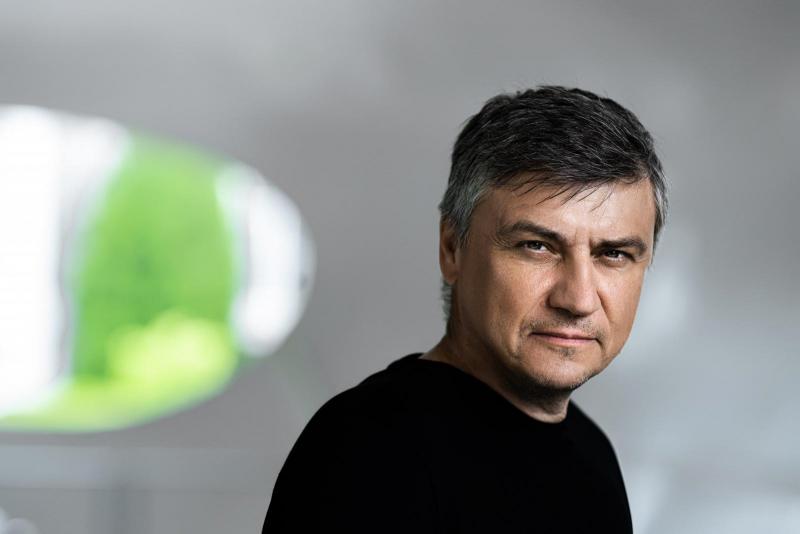People
Martin Cígler: The biggest obstacle to faster a development of it is the lack of people

In the 1990s, he founded an IT company, which today is an international holding Solitea with a turnover of several billion. He employs 1,500 people and his company is behind the creation of systems such as eRecept, iDoclad and Dotykačka. For his contributions in the field of information technology he received the medal of the Dean of FIT (Faculty of Information Technology) BUT. But he recalls his entrepreneurial beginnings modestly – I was an IT guy in a sweater with a lack of managerial experience. It could have gone the other way.
You have been declared the Entrepreneur of the Year of the South Moravian Region, the Personality of the Year of Czech Computer Science and in the media you are referred to as the king of accountant systems. How do you listen to it?
The moment you represent the company, you kind of lick the cream for your employees. These awards are the result of the work of the entire team that sits here with me. I've been lucky to have incredibly good people for the last 20 years. If it weren't for them, there would be no awards.
The Czech labour market has been lacking staff for a long time – are you still able to find quality people for your company?
It is not a problem to find top managers, but it is a huge problem to find normal employees. The IT market is at its worst – it's not just those who don't want to work who work here. I'm now curious to see how the war in Ukraine will be reflected in this. We have a similar language with Ukrainians. We are happy to keep them busy and help them through this challenging time. Of course, we will also help ourselves. I am convinced that, especially in IT, the lack of employees is the biggest obstacle to faster development.
Does the war conflict in Ukraine affect your business in other ways?
We're not feeling it yet. We don't have Ukrainian customers, but we have customers who have Ukrainian suppliers, for example. However, in time, the war in Ukraine will be felt by all – whether primarily because they have trading partners there, or secondarily because of sanctions. On the other hand, war has always been the engine of progress in the history of mankind. If the Ukrainian crisis is resolved quickly, it could jump-start the economy. Companies will try to rebuild what has been destroyed, and these opportunities will generate economic growth.
You founded an IT company and were at the inception of Solitea Holding, which today is one of the largest regional software producers. But you yourself did not study computer science at BUT. Why?
It's a more complicated history. My grandfather was an airline pilot and taught aircraft engines at the machine works. He was my role model, so I applied for my first degree at the FME (Faculty of Mechanical Engineering) BUT. After half a year of studying, I sat down at the mainframe and found that I enjoyed programming more than drawing gears. I stayed there for two years, then I tried to switch to electrofaculty and start programming. But I went to the army instead. The year 1990 followed and I founded the company Cígler Software in January and left the electrofaculty immediately.
You founded Cígler Software in the atmosphere of the wild nineties. How was it?
There was no one to learn the business from. I worked at the Research Institute of Veterinary Medicine and after the Velvet Revolution, veterinarians had to go into the private sector. I wrote them a price list for veterinary procedures on the first computers. And they said – hey, that's great, but we still need to invoice it. So I wrote another program called Invoice Plus. That's simply how it started. But I wasn't the only one. Other programmers also discovered a hole in the market – hundreds of thousands of start-up entrepreneurs lacked accountant programs. That's how all the programmers started doing them. There were about 500 companies at the Invex exhibition at the time, offering their own simple accountant programs. It was a one man show – everyone on the street was selling their own software.
In your opinion, is it harder to start an IT business nowadays?
The 1990s were a strange and difficult time, but those who managed to find their place had it easier than today. The lack of managerial skills was then replaced by market demand. It's hard to come up with something today that hasn't been done before. I envy the students of the Faculty of Business and Management at the BUT because they have the opportunity to study a mix of subjects that will prepare them for entrepreneurship. And I see the mistakes I made, and if I had avoided them, I could have been somewhere else. I was just an IT guy in a sweater. I lacked managerial skills and the ability to motivate employees.
How does a Brno company become an international holding Solitea with a multi-billion turnover?
That's a good question. If you had asked me in 1995 if I could imagine having the 1,500 employees I have today, I would have said no. The growth of the company to its first hundred employees was a work of chance and better business instinct. But the creation of Solitea was already a controlled process. In 2005, I realised that we needed to expand abroad – and that it would be easiest to buy foreign companies than to set up our own subsidiaries there. We have also made dozens of acquisitions of Czech and Slovak companies. However, we are growing steadily, with approximately 10% being organic growth and 20% being acquisition growth. And there is still room to move – Solitea has a turnover of around 3 billion today, but the Czech IT market is orders of magnitude higher.
Are you still involved in the development of accountant systems?
Mostly yes – we also do programs that manage internal processes. So not only accounting, but also CRM systems or business intelligence. One of the best known products is iDoklad, which was launched in 2006 and is now used by a third of Czech entrepreneurs. It's a nice example that even nowadays you can find a hole in the market. All cloud invoicing systems were created around 2006 – before that, it was not possible because web browsers were not fast enough. It was just a matter of guessing the right moment and launching a functional product that will make people's lives easier.
You once mentioned that Brno is such a golden ship of IT. How's that?
Yes, Brno is said to be the Czech Silicon Valley. There are tons of universities that generate quality graduates. And there are a lot of foreign companies that benefit from that, and that ecosystem creates opportunities. I have to say that Brno universities are producing better and better graduates. Approximately one third of our employees are graduates of the BUT. We have developers coming in and they already know how to code because they have done big projects from internships that they have tried during their college years. And that's very good. I am also involved in mentoring at JIC (South Bohemian Institute of Lifelong Learning) because I want to share my experience with skilled graduates. I am helping not only them, but hopefully also the Czech Republic to move on from that assembly plant. And also to myself, because mentoring energizes me.
But you are also energized by things that few could stand.
Okay (laughs). You must be referring to my Dakar Rally actions. It came about completely by accident – I have experience in expedition travel and have visited dozens of countries. So one day I was approached by some friends if I would like to join them on the Dakar Rally as a pilot of an escort vehicle. I was very afraid of the first Dakar, but it was good. The beginning hurt, but then you learn – and that's the way it is with everything. I really enjoy driving because for 3 weeks all you have to deal with is eating, sleeping and driving. There's nothing else to do. I return home sleep-deprived, but with a head full of business ideas. It's a digital detox for me in the truest sense of the word.
(mar)
Women from BUT who move the world of science and technology
Doctoral students in engineering study the behaviour of the circulatory system. Neural networks also help them
ARGO underwater: Prototype of student submarine on display at IDET Fair
Device is being developed at strojLAB that students hope will help them succeed in a prestigious biotechnology competition
No space for errors. Internship in a space company forces BUT students to change their thinking